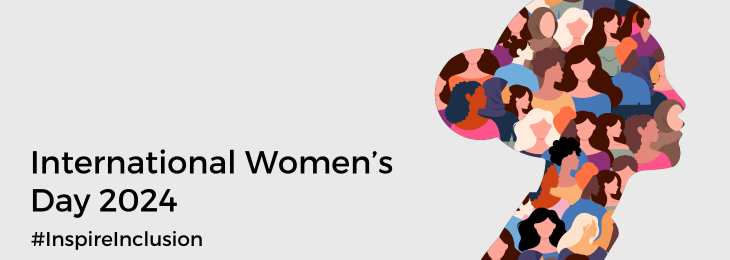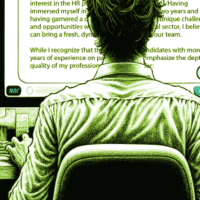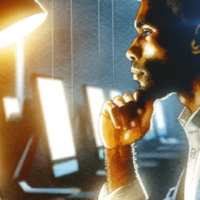
If having the resume is what brings you to the door of opportunity, the next step is the breach. As law enforcement (LE) strive to make a successful entry into the private sector, knowing the “who” may secure the interview but one must be prepared to answer the “why.” Why should a hiring partner invest in a law enforcement officer (LEO) and the LE experience? How does an LE applicant successfully communicate a disciplined LE history that is transferable to a future antimoney laundering (AML) or compliance position? According to U.S. President Dwight D. Eisenhower, “...plans are worthless, but planning is everything.” With that in mind, a tactical strategy is needed to secure the objective—a private sector career.
Industry expert advice coupled with feedback from both hiring managers and LE applicants was compiled to present a clear and concise best practices approach to the interview. Although one size does not fit all, these recommendations are relevant to 21st century hiring practices and offer a comprehensive method for interview preparation.
When preparing candidates for interviews, recruiters’ goals often include making people as aware and as comfortable as possible with the interviewers, the process and the culture. Recruiters strive to minimize surprises and provide appropriate details about the company that might not be available online or through personal research. Preparation is the key to successfully doing anything of importance. Interviews are always nerve-wracking, even for the most veteran of professionals, and preparation alleviates anxiety and bolsters personal confidence— confidence is the key. LEOs must be mentally nimble in interview conversations and it is easier to be imaginative as well as effable when the LE applicant is confident. Anxiety and fear are the enemies to creativity; they can cause distractions by dwelling on what could go wrong. In addition, interviews are much more enjoyable when both parties are at ease. Interview preparation involves both researching the company and the interviewers as well as refining one’s communication skills. Research is very specific and changes with each individual interview. On the other hand, it is recommended to constantly and deliberately refine one’s communication style and skills. It is not about extroversion or introversion. It is not about charm. Strong communication, ironically, is all about listening. Successful and productive communication comes down to understanding what the other party is seeking, asking and requiring. The LE applicant must actively listen during all phases and parts of an interview: the handshake, greeting, the questions and answers, parting comments and follow-up conversations. Interviewers are judging and assessing every aspect of the applicant; what is said and how it is said are under the most scrutiny.
Fortunately, LEOs can excel in careers that range from social interaction and communication (i.e., community events) to exercising authority (communicating one is under arrest). Nationally, if not internationally, a basic LE academy at least includes the fundamentals of interviews (i.e., non-custodial) and interrogations (i.e., custodial). This introduction, coupled with a career’s worth of interfacing with the public, makes LE candidates one of the most proficient and adept applicants that a recruiter can encounter. The confidence that evolves with a vocation of command for decision-making and demanding encounters primes an LE applicant for the interview process.
Verbal and Non-Verbal Indicators
Think of the Miranda warning: “Anything you say can and will be used against you.” This mandated admonishment, minus the implication of criminal charges, is applicable to private sector recruiters. It is their mission to detect any nuances that may indicate ineligibility for the position. Similar to an interrogation room environment, if the LE applicant is listening intently (and genuinely) to the asked questions, the LE applicant will quickly identify key phraseology. By recognizing the intent of the interviewer, the LE applicant will be able to articulate an answer in a concise, direct and confident manner. Surprisingly, the goal should not be to control the conversation and sell oneself, as this can be counterintuitive. The goal is to strategically determine the interviewers’:
- Line of questioning: What do they really want to know? Do their questions have a common theme and focus? If you can determine a common theme, then you can make an educated guess of what they find to be important. Is the company’s culture important? Are they missing technical expertise? Structure your answers to target that theme.
- Cues and traits: How do they speak and ask questions? What is their body language and tone? Are they noticeably in a good mood or bad mood? More gregarious or reticent? The last thing you want to do is talk too much when the interviewer is in a bad mood. Moreover, you definitely do not want to cut off an extroverted conversationalist.
- Values and biases: Do the interviewers show signs of what they personally find important? Can you tell whether they are coming into the interview with preconceived opinions about you? It is difficult to figure out a person’s beliefs and presumptions quickly during a short meeting, but stay diligent nonetheless. Counter to the earlier point regarding selling yourself, you have to try your best to defend yourself against an interviewer’s subconscious bias. In this case, bias does not refer to discrimination and prejudice. As humans, we are all susceptible to more innocuous types of biases. For example, people might have a subconscious negative view of a candidate that has a long gap of time between two jobs on their resume or went to a rival college. Listen for signs of an interviewer’s values and biases that could be working against you.
By evaluating and assessing the interviewer’s gestures, behaviors and attitude throughout the interview, the candidate has the opportunity to recognize and overcome the implied (or explicit) objections to his/her application. For example, you could positively interpret a long gap of time between jobs as the necessary time frame required to transition into another long-term commitment.
Judge and Jury
Unfortunately, a transition from an LE career does not exclude the experience of encountering a judge or jury. In the private sector, we do not judge with our ears first. All first impressions made in person start with what we see. Brian Tracy, a well-regarded leadership and sales coach, says that 95 percent of first impressions are based on clothing because 95 percent of our body is covered in it.1 We do not have complete and outright control over our physical appearance and we all suffer from insecurities about our physique and bodies. You do have complete control over how you dress and your grooming. How you dress should be based on the company’s culture and industry and you will discover that in your research if it is not obvious. For instance, you should wear a conventional and classic suit for a meeting with a bank. A rule of thumb is that most fintechs, regtechs and start-ups do not expect you to be more formal than business casual. The best universal advice is to keep it simple. Simplicity mitigates judgment. Wear colors that are more subdued, minimize the bells and whistles, and do your best to avoid wearing anything that will distract the interviewers or evoke the subconscious biases described above. Just to be clear, we want everyone to be comfortable in their own skin and work at companies that are accepting. However, we all have certain unwritten expectations of people in the candidate chair and you do not want to put yourself at a disadvantage before you had a chance to shine. The following are some pointers on interview attire:
- There is no need to break the bank to look professional. Determine what you are willing to spend on your outfit and then go shopping online or at a department store. The most important part is making sure the outfit fits well. Get your outfit professionally tailored.
- Make sure your shoes are in top shape and shined (if possible).
- Do not wear bright colors or add too many accouterments.
- Groom to the best of your ability. Control everything that is in your power.
- Keep the perfume and cologne to a minimum. We would recommend not applying scents, at all.
- Do as much research on professional attire as your schedule allows. You can always find tips and tricks that fit your personality and style.
- Dry-clean, wash and iron or steam your clothes. Do not dry-clean clothes too much because you will send them to an early grave. Use your personal judgment. However, get the wrinkles out to the best of your ability.
Benjamin Franklin wrote, “By failing to prepare, you are preparing to fail.” Fortuitously, LE directives typically mandate professional appearance and grooming standards on and off duty, lending to extensive preparation in this category. Professional attire and attitude have been engrained into the LE lifestyle and have inherently equipped the LE candidate with an advantage.
Know Your Target and What is Beyond
The cardinal rule of the firearms range is conveyable to interview preparation. By understanding what the target is as well as what it offers,
there is an opportunity to practice position-specific communication skills. It is time to do enhanced due diligence on your potential employer. You have a basic understanding of the company from the job description and the application process. Remember that your goal is to be as confident as possible so you can concentrate on the conversation,
cues and potential biases during the interview. The following are some tips:
The confidence that evolves with a vocation of command for decision-making and demanding encounters primes an LE applicant for the interview process
- Go over the job description several times. Make sure you understand your weaknesses and strengths in comparison to the job responsibilities and required qualifications. You should emphasize your strengths and strategize how to answer questions about your weaknesses.
- The internet is your friend. Do as much research on the company as possible. Review their website, their public announcements and all news, positive or negative.
- Research and read all public consent orders or memos from the company’s federal and state regulators and examiners.
- Read employee reviews. What are current and former employees saying about the company? I highly recommend attending all interviews you are invited to, even if the company has poor employee reviews online. However, the reviews are a good source of material for questions. What questions do you have about their culture and values? Do not refer to negative reviews online during the interview!
- Do you know anyone, personally, that used to work there? Or maybe someone that knows someone? Use this opportunity to cultivate existing relationships and create a new network.
- Are you working with an external recruiter? Ask them to send you as much information as they have about the company, the people, the role and feedback from other interviewees. No detail is too small.
- If you are not working with an external recruiter, do you have a trusted recruiter contact that could provide more detail or do some digging for you? It does not hurt to ask. You only get in life what you ask for.
Mock Trial and Interviews
At the onset of the LE profession, academies have prepared recruits for courtroom encounters. Mock courtroom scenarios equipped recruits for real life testimony, tense cross-examination and scrutiny in either a jury or a bench trial. Although now removed from the courtroom environment, training remains critical for a successful transition. Set up a mock interview with a friend, trusted colleague or recruiter. The ultimate goal is to simulate the physical aspects of the interview and practice your communication skills and dynamic listening abilities in real time.
- Simulation: Will the interview be in person, over the phone or via a video conference? Do you know whether you will be speaking to one or multiple people? If multiple people, will you be speaking to each person individually or in a panel? Please feel free to ask your point of contact at the company these questions if they have not volunteered the information. However, please be comfortable with not knowing all the details.
- Communication: Debrief friends and colleagues on all the details you have about the interview and the job. They need to put their tough-love hat on for this exercise, so emphasize the importance of not holding back. You are not going through the motions here; you are identifying weaknesses. You have to be brutally honest with yourself.
If possible, ask for the interview agenda and the names of the people interviewing you. Everyone has a unique interviewing style and process. Agendas will differ depending on the interviewer. In a mock interview, make sure to cover the following:
- Qualitative and cultural questions:
- Soft skills: Identify your communication skills and styles, writing abilities, leadership and management experience.
- Detail your strengths and weaknesses.
- Identity and profile: Prepare for the “tell me about yourself questions.” Also included in this category is the discussion of a complex or memorable situation. Be mindful not to divulge sensitive material.
- Work and team: Share your management and leadership philosophy, your perfect boss, and desired team and company culture.
- Technical:
- Systems: Highlight your experience with technology and its applications.
- Process and protocol: Discuss experiences with legal obligations and deadlines, formal investigations and assessments of those experiences.
Mock interviews are invaluable and timeless because they help to shed light on core weaknesses and unidentified core strengths to elaborate. Practice makes perfect; yes, but you do not have to do mock interviews before every real interview. You are never going to know whether your interviewers are in a bad or good mood, if they are going to practice a new tip they learned in training or if they even care to be there. Much like target practice and dry firing, you want to practice the fundamentals, which you can control and master. The fundamentals of an interview are dynamic communication and listening. Although the statement is cliché, it is important to emphasize the artistry involved in perfect fundamentals. Before every interview, pretend that whoever is speaking to you is telling you the most important information you are ever going to hear in the history of the world. Then you will be completely present in all of your conversations.
Letter vs. Spirit
As an LEO, you have protected your jurisdiction, your fellow human beings, and the sanctity of social integrity and civility. Your client, so to speak, was the law. When you transfer out of the government, your new client is the business for which you work. Your mandate and mission are to protect the reputation and the bottom line of your client. The best compliance and AML officers—the ones that have long, robust and impressive careers—are not “no” people. They do not act as obstacles to the sales and business leaders (the front office). They facilitate business and protect the bottom line by creatively strategizing ways of doing business without risking the reputation of the company. Strong compliance and AML programs (the back office) are based on relationship management. The back office requires flexibility and wants the front office to buy in to and embrace a strong compliance and ethical culture. Please ruminate on this point, which is analogous with the letter vs. spirit of the law debate. Was your work ethic encouraged to be textual or interpretive of the law? LE and the private sector require people who can make tough calls in complex situations. How do you balance all the forces pulling at you: ethics, ambition, duty, law and survival? You must always live in the gray, where situations are rarely black or white. The private sector thrives in the gray. As an LEO, you will be at an advantage because you will bring experience on making tough decisions. Think about the discipline associated with an LE career as you pursue roles in the private sector. Ultimately, you are built to succeed in the private sector. Your transition will be easier if you are aware of the cultural expectations desired in the private sector.
If “efforts and courage are not enough without purpose and direction,” the above guidance offers a foundation to build a purposeful interview skillset. By learning from the tactics implemented by interviewers and candidates, applicants can prepare for the successful resolution of the objective: the job offer.
- Brian Tracy, “The Importance of A First Impression,” Brian Tracy,
https://www.briantracy.com/blog/leadership-success/the-importance-of-a-firstimpression-everything-counts-personal-statement/










